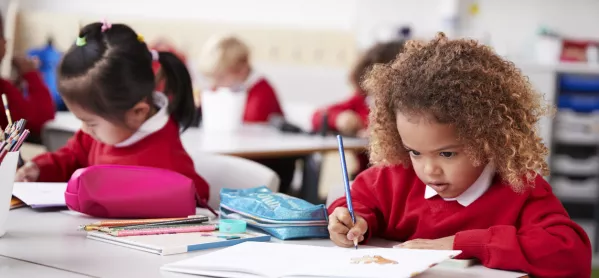- Home
- Scottish education can do better for BAME pupils
Scottish education can do better for BAME pupils

Growing up as a mixed-race girl (white Scottish and black African), I felt the Scottish schools I attended could have provided a much better environment and more support for people of colour.
I grew up and attended school in a deprived area, with a predominantly white population. My sister and I were the only two people of colour in our primary school for several years, and two of fewer than 10 black individuals at the secondary school we attended.
While, for the most part, I had a splendid childhood, some of it is clouded by my experiences of racism in school.
Background: BAME people ‘woefully underrepresented’ in schools
Archive interview: Anti-racism educator Jane Elliott
LISTEN: Teachers ‘too scared’ to talk about racism
Decolonising the curriculum: ‘Use the school curriculum to tackle racism’
Racism in schools: Teaching body CEO ‘sickened’ by racism in schools
The first time I ever experienced racism was in my primary school, and I remember it very well. I was around 5 years old. I had come out into the playground after lunch. Some girls in the year below me were pointing directly at me, shouting and dancing. At first, I was unfazed as I could not make out nor comprehend their toneless chanting. Listening further, I understood the words: “Aleisha is a blackie”. It took seconds to cognitively digest. When it did, it stung worse than any tangible wound could.
Since that first experience, there have been many more like it. These experiences deflated my self-confidence throughout primary and high school. As I went through puberty, I detested the way I looked and my African heritage. I feel BAME adolescents, in particular, are in need of increased support and guidance going through puberty, where they will have experienced racial abuse. A safe space for these individuals to discuss and reflect on their experiences and emotions would be ideal and extremely worthwhile.
I do not want other young BAME children to feel the same self-doubt I did growing up. I found that when I’d report instances of racial abuse to a teacher or assistant, they would often brush them off and tell me to ignore it, because “kids are just like that”.
It is this kind of attitude that allows racism to continue to thrive. I feel that teaching staff, particularly in areas like my own where there are not many BAME students, need more specific training aimed at addressing cases of racial discrimination when they occur. Educators must also be educated and racial-awareness training should be made mandatory.
Furthermore, the fact that there were often no proper repercussions for the children who racially abused me allowed them to continue to do so throughout my time in primary school. Children need to learn about why racism is wrong, and about the harsh and harmful consequences of racism and anti-blackness from a young age.
In my experience, the topic was only introduced in class when I was around 9 or 10. This is too far late. There is a need for reparation in the Scottish education system. I propose a curriculum for black excellence, detailing the BAME experience.
Furthermore, we need much more diverse teaching staff in Scottish schools. In my time at both primary and secondary school, I never had one single non-white teacher or school leader. This lack of role models made me feel alienated, as I imagine other BAME children feel.
I, like many other people in Scotland, feel very passionate about making a change. I feel the Black Lives Matter movement is encouraging people to challenge racist beliefs - and I am hopeful for the future of Scottish education.
Aleisha Omeike is a 19-year-old psychology student at the University of St Andrews, from Wishaw, near Glasgow. She tweets @aleisha_omeike
Register with Tes and you can read two free articles every month plus you'll have access to our range of award-winning newsletters.
Keep reading with our special offer!
You’ve reached your limit of free articles this month.
- Unlimited access to all Tes magazine content
- Save your favourite articles and gift them to your colleagues
- Exclusive subscriber-only stories
- Over 200,000 archived articles
- Unlimited access to all Tes magazine content
- Save your favourite articles and gift them to your colleagues
- Exclusive subscriber-only stories
- Over 200,000 archived articles